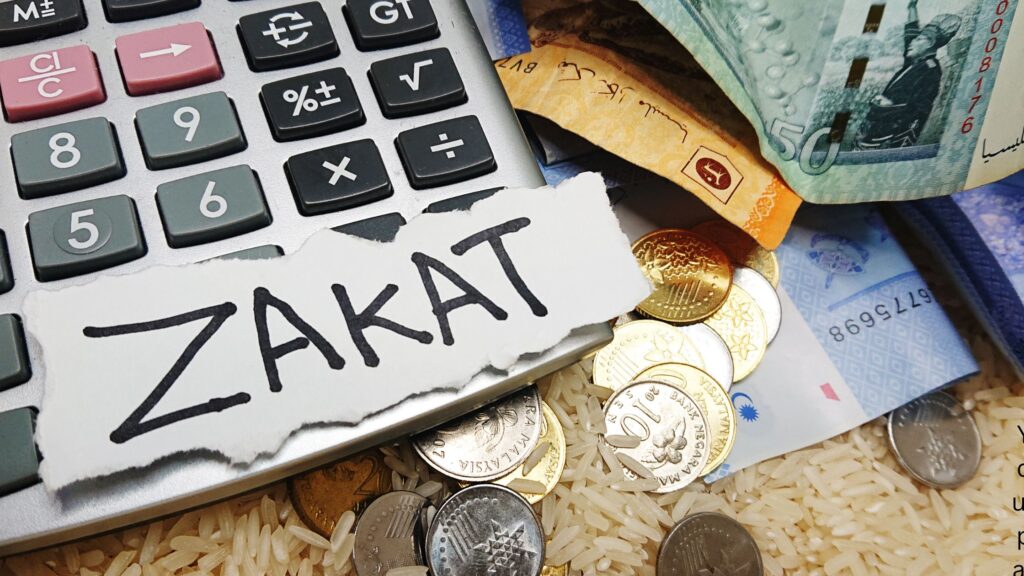Are you a graphic designer working from your laptop? A content creator making videos for brands? A programmer building apps for clients? Or maybe you drive for Uber, deliver food, or manage social media accounts for businesses?
If you answered yes to any of these, this article is for you. Nigeria’s new tax law or the Tax Act, 2025 has something to say about your income, and it’s not as scary as you might think.

Are You a Business or an Employee?
This is probably the most important question, and here’s the simple answer: If you don’t have a formal employment contract and instead work for different clients, you’re considered self-employed. This means you’re running a small business, even if you work from your bedroom or a coffee shop. The law sees your freelance work the same way it sees any other business activity. What this means for you is that you’re responsible for calculating and paying your own income taxes. No employer is deducting tax from your pay because you don’t have an employer in the traditional sense.
You Don’t Pay Tax on Everything You Earn
Here’s something to cheer you up: you only pay tax on your profit, not on all the money clients pay you. Let me explain with a real example: Chioma’s Graphic Design Business: Chioma earns ₦200,000 per month from designing logos and flyers for different clients. But she also spends money to run her business, including
- Internet and data: ₦15,000 per month
- Software subscriptions: ₦10,000 per month
- Laptop repairs and maintenance: ₦5,000 per month
- Transportation to client meetings: ₦8,000 per month
- Total business expenses: ₦38,000 per month
Her taxable income is ₦200,000 – ₦38,000 = ₦162,000 per month. According to the new law, she is then expected to only pay income tax on the ₦162,000 profit, not the full ₦200,000 she collected from clients.
But Yes, You Still Pay Income Tax on That Profit
The income tax rates are graduated, meaning that the more you earn, the higher your rate. They start at 7% on the first ₦300,000 of taxable income and rise to 24% for income above ₦3.2 million per year. You also get standard reliefs, including ₦200,000 or 1% of gross income (whichever is higher) plus 20% of gross income, and deductions for pension, NHF and health contributions. So, in practice, most small freelancers with modest incomes will fall into the lower brackets (7–15%) after reliefs, while higher-earning digital professionals and creatives will pay more.
| Annual Taxable Income (₦) | Rate (%) |
|---|---|
| First ₦300,000 | 7% |
| Next ₦300,000 | 11% |
| Next ₦500,000 | 15% |
| Next ₦500,000 | 19% |
| Next ₦1,600,000 | 21% |
| Above ₦3,200,000 | 24% |
What Business Expenses Can You Deduct?
The new Tax Act, 2025 allows you to subtract legitimate business costs from your income. Think of these as the costs you wouldn’t have if you weren’t running your freelance business.
Common expenses you can deduct include: internet and data subscriptions for work, rent for office space or co-working spaces, professional equipment like cameras and laptops, software subscriptions and apps, transportation to client meetings, training courses and certifications, marketing and advertising costs, and bank charges or payment platform fees.
What you cannot deduct: personal expenses like your family’s food, rent for your personal apartment (unless part is used exclusively for business), vacations and personal travel, personal phone bills (unless the phone is used exclusively for business), and clothes for personal use.
The key rule is simple: if you would still spend this money even without your freelance work, you probably can’t deduct it.
Special Opportunities for Creative and Tech Workers
Here’s some good news: the government recognizes that creative and tech workers are important for Nigeria’s future. If you work in these sectors, there might be special tax incentives available to you. For example, if you work with startups registered under the Nigeria Startup Act, or if you’re involved in research and development activities, you might qualify for tax breaks. These incentives are designed to encourage innovation and creativity.
You’re Your Own Finance Department
Unlike people with regular jobs, no one is handling your taxes for you. You are responsible for keeping track of your income, calculating your taxes, and making sure you pay on time. This might seem overwhelming, but it’s actually not that complicated once you get into the habit. Think of it as part of running your business professionally.
Simple Steps to Stay on Top of Your Taxes
1. Start with separate accounts: Open a bank account specifically for your freelance income. This makes it much easier to track your business finances and separate them from your personal expenses.
2. Keep every receipt: Whether it’s ₦100 for data or ₦50,000 for a new laptop, keep receipts for all business expenses. Take photos of paper receipts and store them in a folder on your phone.
3. Track your income: Write down every payment you receive from clients. You can use a simple notebook, a spreadsheet, or even a notes app on your phone. Even if you only earn ₦50,000 per month from freelancing, you should still keep records and understand your tax obligations.
4. Issue proper invoices: Even if your client doesn’t ask for one, always send a professional invoice. This shows you’re serious about your business and helps you track what you’re owed.
5. Set money aside for taxes: Put aside about 10-15% of your profit each month for taxes. This way, you won’t be caught off guard when tax time comes. The tax authorities are getting better at tracking online transactions and bank transfers. It’s better to be compliant from the start than to face penalties later
Real-Life Examples To Help You Understand Better
Scenario 1: Amaka the Social Media Manager: Amaka manages social media accounts for small businesses. She earns ₦150,000 per month and works from home, so her main expenses are internet (₦20,000) and phone bills (₦10,000). Her taxable income is ₦120,000 per month (₦1.44 million per year). She’s below the individual income tax exemption threshold, so she might not owe any tax at all.
Scenario 2: Kemi the App Developer: Kemi builds mobile apps for startups and earns ₦500,000 per month. Her expenses include software licenses, co-working space rent, and equipment, totaling ₦150,000 monthly. Her taxable income is ₦350,000 per month (₦4.2 million per year). She pays income tax on this amount and benefits from tech sector incentives.
Need Help Managing Your Freelance Taxes?
Taxpal is a comprehensive tax management platform designed to simplify tax processes for freelancers and independent workers like you. Whether you’re just starting out or have been freelancing for years, the platform provides:
Automated tax calculations specifically designed for freelancers and gig workers. Simple expense tracking to help you maximize your deductions. Expert guidance on compliance requirements for self-employed individuals. Personalized support from professionals who understand the freelance lifestyle.
Visit their website to choose between paid consultations or portal access, and take control of your freelance finances today.












